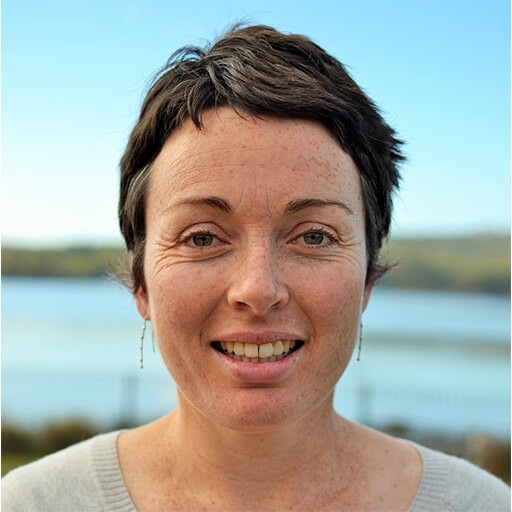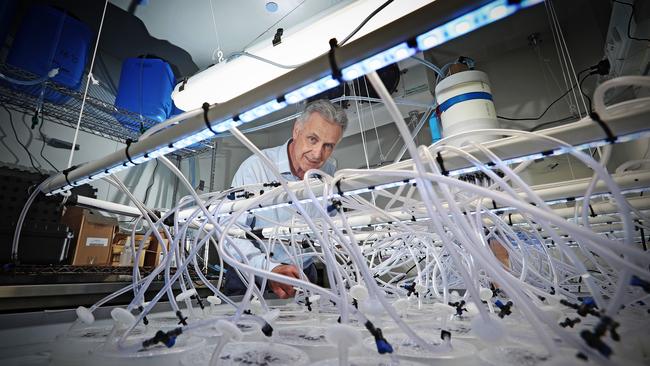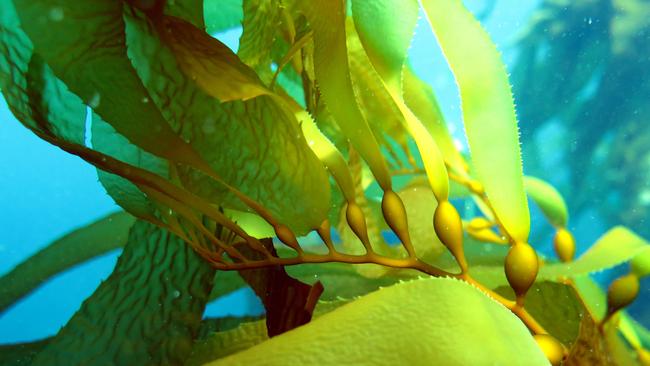Marine-climate research could be waste of time if management doesn’t keep pace
With the explosion in marine-climate research globally and in Tassie waters, a UTAS professor says changes need to be made to ensure findings aren’t wasted. The global gap in research.

Tasmania
Don't miss out on the headlines from Tasmania. Followed categories will be added to My News.
A new global study led by a team of University of Tasmania (UTAS) researchers has found that new marine-climate projects worldwide may become a “waste of time and resources” if management of the new research doesn’t keep pace.
The paper, published in the Nature Climate Change journal, surveyed 332 marine-climate project practitioners worldwide about the rapidly emerging field of marine-climate projects, which include projects like blue-carbon programs and coral and seaweed replanting.
The paper’s lead author and marine sociologist at UTAS’ Institute for Marine and Antarctic Studies (IMAS) Associate Professor Emily Ogier said there has not been enough systematic study into new marine and climate intervention research or projects.

“There is quite a lot of recognition that there’s some work to do here,” she said.
“We’re moving out of the early science, experimental-mode to thinking ‘if we’re going to see these actions happen more and more and in combination, what do we need to understand?’
“It’s a globally identified challenge. In some regions there is strong planning but in many areas it’s a major gap.”
After gathering information from the 322 practitioners including the types of projects being developed or deployed, their locations and stages of development, Assoc. Prof. Ogier said there is a “clear pacing problem” between new research projects and management of them.
“It’s really important that there is, at the more overarching policy level, a clear conversation about how we plan to respond to climate change and its impacts on marine areas and how we address other kind of policy goals we’ve got for those areas,” she said.

“So if you think about a marine protection area, for example, where we’re normally considering conservation, there needs to be planning and policy conversations about ‘how are we addressing climate’ and do we need to conserve differently at that broad level?’.
“The biggest risk overall is if there’s lots of separate funding and attention going into all these separate actions and there isn’t any coordination and any real evaluation of them, we could find that we just keep investing in the wrong solutions.
“The bigger issue I think, is that if no one’s taking a big picture look that we find out that all those smaller experiments and trials and didn’t actually build climate resilience or make the marine system more adaptable and didn’t actually contribute effectively to climate mitigation – that’s our danger.”
While it is a global issue, Assoc. Prof. Ogier said Tasmania is heavily implicated in the research’s findings.

“We are one of the marine climate hotspots down here in Tasmania, with our hundreds of kilometres of coastlines and our marine industries,” she said.
“There is building interest in looking at things like trials of marine carbon dioxide removal in our water, trials of genomic work on kelps etc.
“We need to start to get ready to ask the right questions about what’s the best thing to do in our marine areas as we navigate climate impacts across the next decade.”
More Coverage
Originally published as Marine-climate research could be waste of time if management doesn’t keep pace





